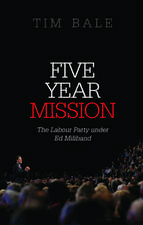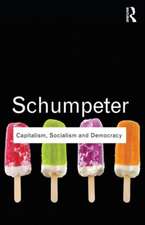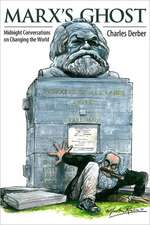Economic Democracy: The Politics of Feasible Socialism
Autor Robin Archeren Limba Engleză Hardback – 13 apr 1995
Preț: 322.54 lei
Preț vechi: 466.96 lei
-31% Nou
Puncte Express: 484
Preț estimativ în valută:
61.72€ • 64.08$ • 51.47£
61.72€ • 64.08$ • 51.47£
Carte tipărită la comandă
Livrare economică 11-17 martie
Preluare comenzi: 021 569.72.76
Specificații
ISBN-13: 9780198278917
ISBN-10: 0198278918
Pagini: 276
Ilustrații: line figures, tables
Dimensiuni: 147 x 225 x 23 mm
Greutate: 0.5 kg
Ediția:New.
Editura: Clarendon Press
Colecția Clarendon Press
Locul publicării:Oxford, United Kingdom
ISBN-10: 0198278918
Pagini: 276
Ilustrații: line figures, tables
Dimensiuni: 147 x 225 x 23 mm
Greutate: 0.5 kg
Ediția:New.
Editura: Clarendon Press
Colecția Clarendon Press
Locul publicării:Oxford, United Kingdom
Recenzii
a notable addition ... This is an important book, with many arguments and themes that will repay development ... It provides a different account of market socialism from many other version on offer.
Robin Archer presents a spirited defence of collectivism in the economic and political realm.
Archer's model of economic democracy is closely informed by rational-choice theory. For readers already sympathetic to this approach, his arguments will be assessed for their elegance and precision.
His sophisticated discussion of European socialism, especially its flirtation with corporatism, is exceptionally enlightening for students of contemporary political thought and possible practical action.
He has made the case for corporatism more compelling and more practical than any I have read for some time.
Robin Archer presents a spirited defence of collectivism in the economic and political realm.
Archer's model of economic democracy is closely informed by rational-choice theory. For readers already sympathetic to this approach, his arguments will be assessed for their elegance and precision.
His sophisticated discussion of European socialism, especially its flirtation with corporatism, is exceptionally enlightening for students of contemporary political thought and possible practical action.
He has made the case for corporatism more compelling and more practical than any I have read for some time.

















